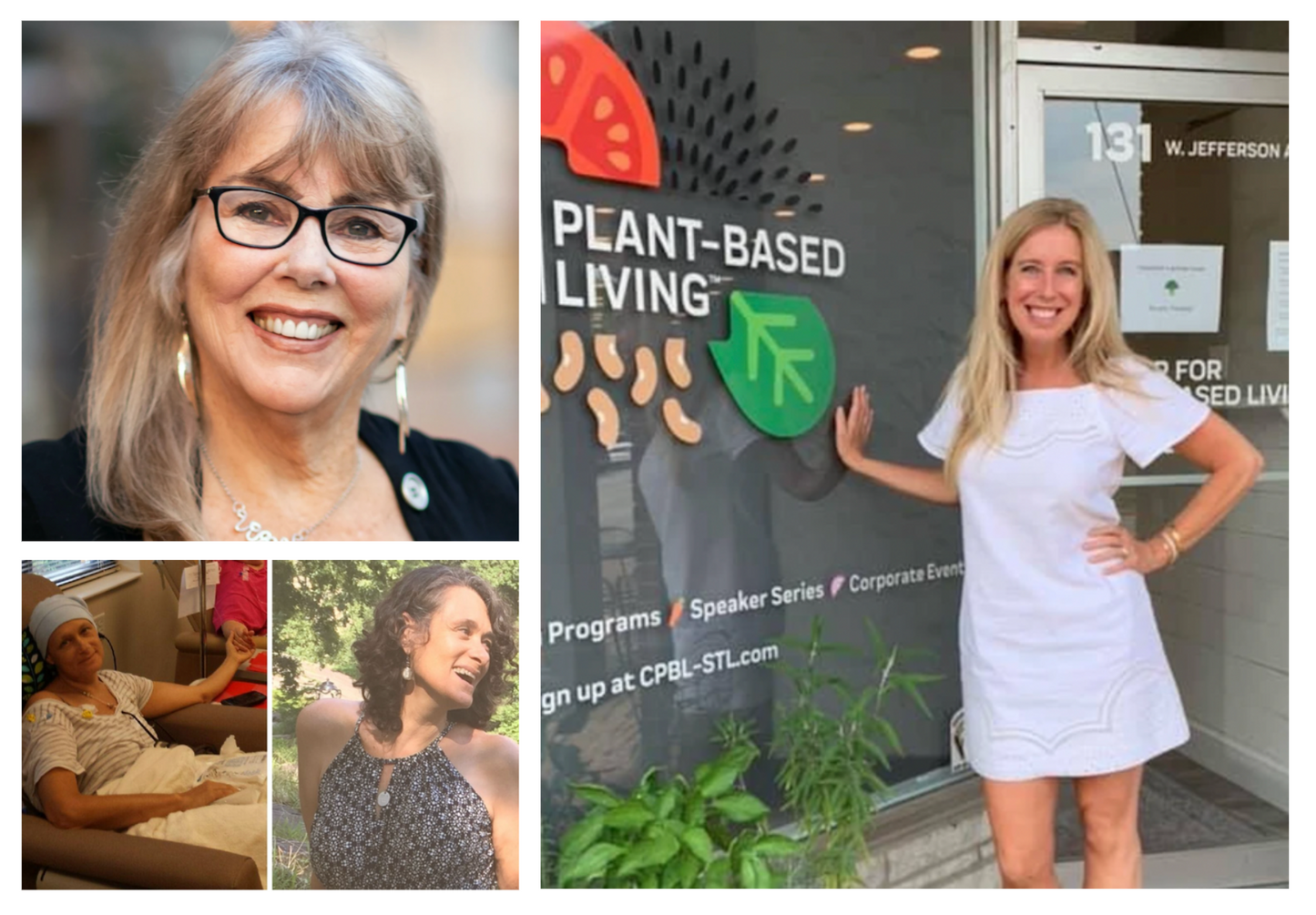
As we at MamaSezz well know, changing to a plant-based diet can change your life in ways you never expected. In this series, we talk with some of the world’s most soulful, dedicated (and often funny) individuals. We get to hear their stories of suffering, transformation, and service — and we learn how food is an essential part of their journey.
Want to start your own plant-based journey? Get started here.
This week, we speak with three women who each discovered just how healing a plant-based diet can be, even in the face of cancer.
First, why do plants help with cancer prevention and treatment?
Currently, there is no official “cure” for cancer, but there are extensive cancer treatments and lifestyle practices you can follow to lower your chances of getting cancer. While many treatments revolve around modern medicine, there are certain diets and practices that can help your body heal, boost immunity, and in some cases, even stop cancer growth. The American Institute for Cancer Research says it best:
“Inflammation is identified in the AICR Third Expert Report as one of the key 'enabling characteristics' that contribute to cells acquiring hallmarks of cancer. In contrast to short-term inflammation that’s essential for wound-healing and recovery from infections, chronic low-grade inflammation contributes to all stages of cancer development.
Inflammation leads to the production of free radicals that damage DNA, potentially creating cancer-causing mutations.
Signaling by cytokine proteins produced by inflammatory cells seem to dial up expression of oncogenes (which increase cancer cell growth) and dial down tumor suppressor genes.
Inflammation may also be involved in cancer metastasis and in resistance to treatment, based on emerging research.
Recognizing the potential importance of inflammation—and a diet that reduces inflammation—in cancer, AICR funding provided some of the support for research on anti-inflammatory diets and cancer.”
The American Institute of Cancer Research concluded that, “The association of an anti-inflammatory diet with lower cancer risk provides an example of how you can reduce risk of both heart disease and cancer. Diet scoring systems link a more anti-inflammatory diet with lower levels of heart disease risk factors and risk of heart disease. And an anti-inflammatory diet is compatible with the AICR Recommendations that are based on today’s best evidence on eating to lower cancer risk.”
In other words: it's a great idea to load up on your fruits and veggies, especially if cancer runs in your family, or you are at high risk.
3 women and cancer survivors who went plant-based after their diagnoses
1. Caryn's Recovery from Malignant Melanoma

10 years after losing her father to cancer, Caryn received a cancer diagnosis herself. She turned to the University of Google and found out pretty quickly that animal products increase your chances of cancer greatly. It was at that moment that she decided to fill her plate with only plant-based foods. She hasn't been sick a day since, and even opened her own health food center.
Read more about Carny's recovery.
2. Linda's Recovery from Thyroid Cancer

Meet Linda Middlesworth, a vegan activist, WFPB advocate, and teacher at the Physicians Committee for Responsible Medicine. Linda explains how she was able to heal her thyroid cancer by changing up her diet. She was also able to drop 50 pounds and reverse other health conditions.
Best of all, she notes she feels better at 77 years old than she did in her twenties! Like many of us, she made the change for health-related reasons, and then became an animal advocate as she learned more about the meat and dairy industries along the way.
Read more about Linda's recovery.
3. Naomi's Recovery from Breast Cancer

Naomi's oncologist told her that nutrition wouldn't affect the chances of her cancer coming back or not, but she didn't listen. Today, Naomi has discovered the healing power of plants, firsthand. She did her own research and found Dr. Colin Campbell’s study on cancer growth in association to animal protein. She's officially cancer-free and now empowers others to make the switch to plant-based eating for their health.
“I was struck by lightning when T. Colin Campbell, Ph.D., explained how his research found that eating animal protein turns cancer cells on and not eating animal protein turns cancer cells off.”
Read more about Naomi's recovery.
How to get started with plant-based eating
The Physicians Committee for Responsible Medicine agrees whole plant-based foods are the way to go when it comes to disease prevention! And the more plants the better. Not sure where to begin? Try meatless Mondays, test out plant-based side dishes first, or let MamaSezz do the cooking and order our Get Me Started Bundle.

